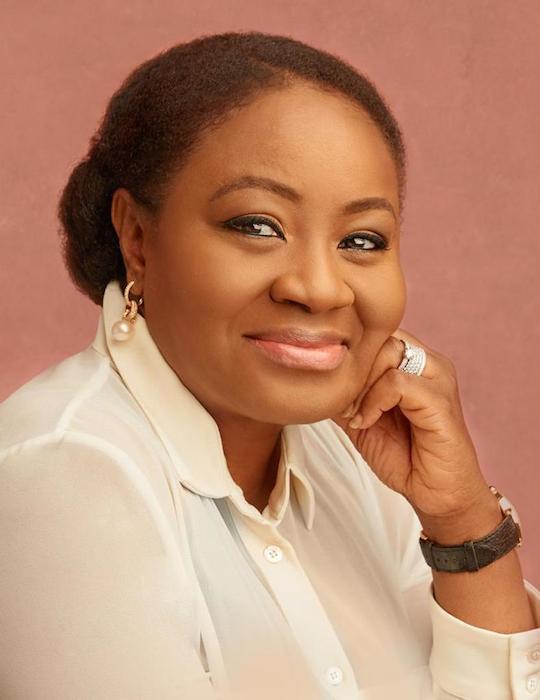...To get all news updates, Join our WhatsApp Group (Click Here)
Also Join our WhatsApp Channel (Click Here)
By: SUNDAY ADEBAYO
As it’s the case all over the world, there are few women heading top executive positions in Nigeria corporate space. While this is something to worry about, it became even more worrisome when those few women who manage to climb to the top of the corporate ladder work efficiently as men would rather do.
Oluwatomi Somefun (born October 2) is an award winning Nigeria banker. She is the chief executive officer (CEO)/ Managing Director (MD) of Unity Bank, making her the first in the bank’s history to hold this position.
Named as one of the top 25 most distinguished Chief Executive Officers of quoted Nigerian companies for the 2015 financial year, Oluwatomi Somefun does not have any question mark about her competence.
Somefun is passionate about people especially young adults and helping them to
achieve their God-given potential inspire of their limitations. She mentors and counsel individuals in their professional and social development. She sits on the board of a number of Financial and Educational institutions, and has served on the Advisory board of several Foundations including UBA Foundation.
As one of the female Chief Executives heading banks in Nigeria, Somefun has in her 7 years of leading Unity Bank Plc, proven her mettle, making it possible for other women to find a smoother path into top executive positions.
ACHIEVEMENTS
Too many experts within an industry give the illusion that this is normal and everyone is at the same level of brilliance, vision and breadth of ability. But in the banking and finance sector, there are crouching dragons and tigers. Crouch no more, Oluwatomi Somefun; your genius has been exposed. Unity Bank Plc used to be one of those bank’s in Nigeria that kept a semi-low profile. Such bank did not seek to compete, only to meet their predetermined goal. No more! The brilliance, methods, pursuit and accomplishments of the bank’s MD/CEO, Oluwatomi Somefun, have dragged it to stand on an equal height with the other banking giants of Nigeria.
In recent days, Somefun has consolidated her more than two and a half decades of corporate experience and thrust her high-tier level of expertise into the pool of master managers and CEOs in Nigeria. Taking advantage of trends, Somefun has resorted to tying certain blocks of the Unity Bank customer demography to certain staff teams within the bank. The result of this decision is a new wave of banking services that is tailor-made for and therefore suits everyone of their customers. Talk about customer satisfaction.
Somefun has also managed to reach equilibrium in her integration of traditional and modern banking. In a world where nearly everything is available at the click of a button, Somefun is pushing to have Unity Bank take the lead in these responsive, customer-deterministic services. So far, the digital service corner of the bank has closed in on it’s former objectives of awareness and utilization.
Overall, Oluwatomi Somefun is not a disappointment to her dazzling education or many chattered fellowships. This is what it means to be a visionary leader, a professional banker, and an excellent corporate Paragon. If Unity Bank does not surpass it contemporaries with Somefun at the head of things, it might as well become a book shop.
EDUCATION
Somefun studied English language at the Obafemi Awolowo University, Ile-Ife and graduated with her first degree in 1981. Since she had no academic training in accounting, banking or economics, she would later take important professional courses and certifications. She became a Chartered Accountant in 1982 and is currently a fellow of the Institute of Chartered Accountants of Nigeria (ICAN).
She also did some graduate studies at the Harvard Business School and the University of Columbia, and attended an international training programme with INSEAD Fontainebleau, in France. First degree or not, Somefun has acquired sufficient trainings over the years. She is also a member to professional bodies like the Bank Directors Association of Nigeria (BDAN), the Chartered Institute of Bankers of Nigeria (CIBN), the Institute of Directors (IOD), and others.
CAREER
The over three decades’ journey to becoming the formidable banker she is today, started with a role as Senior Audit Assistant with KPMG from 1982 to 1986. She moved on to Arthur Andersen, still in the capacity of Senior Auditor and spent another couple of years there before leaving in 1989 to join Ventures & Trusts Limited as an Associate. This would be the last step before Somefun started her three decades of banking career which would cut across core sectors like Treasury & Investment Banking, Corporate Banking, Retail and Commercial Banking Operations.
Mrs Somefun worked with Credit Bank Limited. Later, she moved to the UBA Group. She headed two of UBA Group’s major subsidiaries; serving as the MD/CEO of UBA Capital & Trustee Limited and the Founding Managing Director of UBA Pension Custodian Limited. She served as a Non-Executive Director on the boards of directors of UBA Foundations, UBA Trustees, UBA Nominees and UBA Registrars.
With Unity Bank Nigeria Plc, Somefun served as the Executive Director overseeing the Lagos and South-West Business Directorates, the Financial Institution Division and Treasury Department of the Bank. This was before August 2015 when she succeeded Mr. Henry James Semenitari in 2015 as Unity Bank’s CEO.
She is a Member of the Board Finance; General Purpose Committee, Board Risk Management Committee, Board Credit Committee, amongst others.
Within the last seven years, she has reordered Unity Bank to the path of growth and profitability; de-risking the balance sheet, introducing products like UniFi (a mobile banking product with robust digital offerings which now stands as a flagship youth banking product); Corpreneurship (a youth banking initiative that targets entrepreneurship-minded fresh graduates completing the compulsory one-year national youth service).
Under her tenure, Unity Bank also became the first Nigerian Bank to offer Multi-lingual USSD Banking in the three major Nigerian languages. Somefun is helping to drive the bank’s vision of being the bank of choice for all Nigerians.
She piloted the bank through the troubled waters it in 2016 and 2017 when its financials were being bugged with a high volume of non-performing loans borrowed mostly by some former board members, which affected the bank’s capitalisation.
RECOGNITIONS AND OTHER POSITIONS
Oluwatomi Somefun won the 2019 Top 25 CEOs Next Bulls award in recognition of the bank’s stellar performance on the Nigerian Stock Exchange (NSE). The award came to her in recognition of the bank’s sterling performance for the year, as its stock appreciated 101.89% in the year, making it one of the best-performing stocks on the NSE.
Tomi Somefun was also listed among the top 25 most distinguished Chief Executive Officers of quoted Nigerian companies for the 2015 financial year.
She also won the top BusinessDay Top 25 CEOs award in 2019. She was conferred an Honorary Degree of Doctor of Business Administration by Redeemer’s University (RUN).
OLUWATOMI SOMEFUN QUOTES
“We underestimate the value of what each
one of us can do.”
“So don’t quit just yet… you’re closer to the
finishing line of your challenge than you
think.”
“A job is a challenge and not an
achievement!”
“Greatness is a process and not an event.”
“Your words weigh 1000 tons… Chose them
carefully!”
“The only way to get rid of your past
mistakes is to learn its lesson for the
future; God will waste nothing. Make
every experience count.”
“Every new person we meet present a new
opportunity from God, to be blessed or to
be a blessing. Don’t waste it.”
“Experience they say is the best teacher,
but the school fees are high, so save
yourself fees and copy handout from other
people’s lessons.”
“Difficult roads often leads to beautiful
destinations.”
“Good is working, though we often don’t
just how…”
You can get every of our news as soon as they drop on WhatsApp ...To get all news updates, Join our WhatsApp Group (Click Here)
Also Join our WhatsApp Channel (Click Here)

















